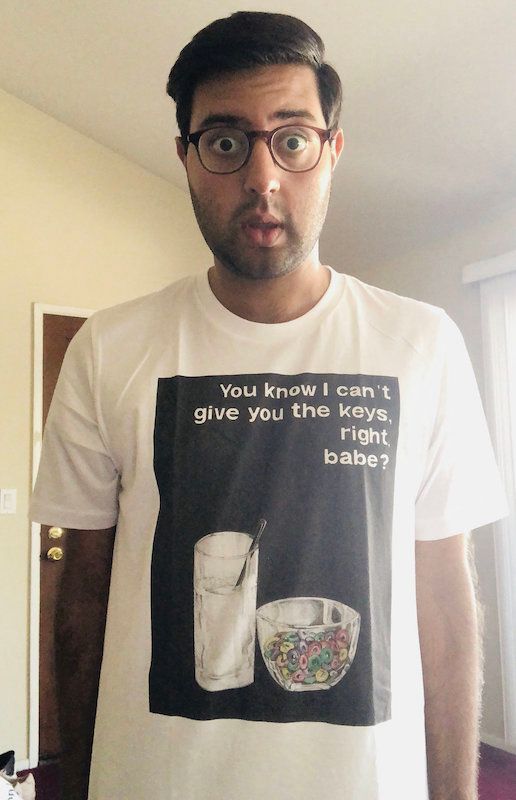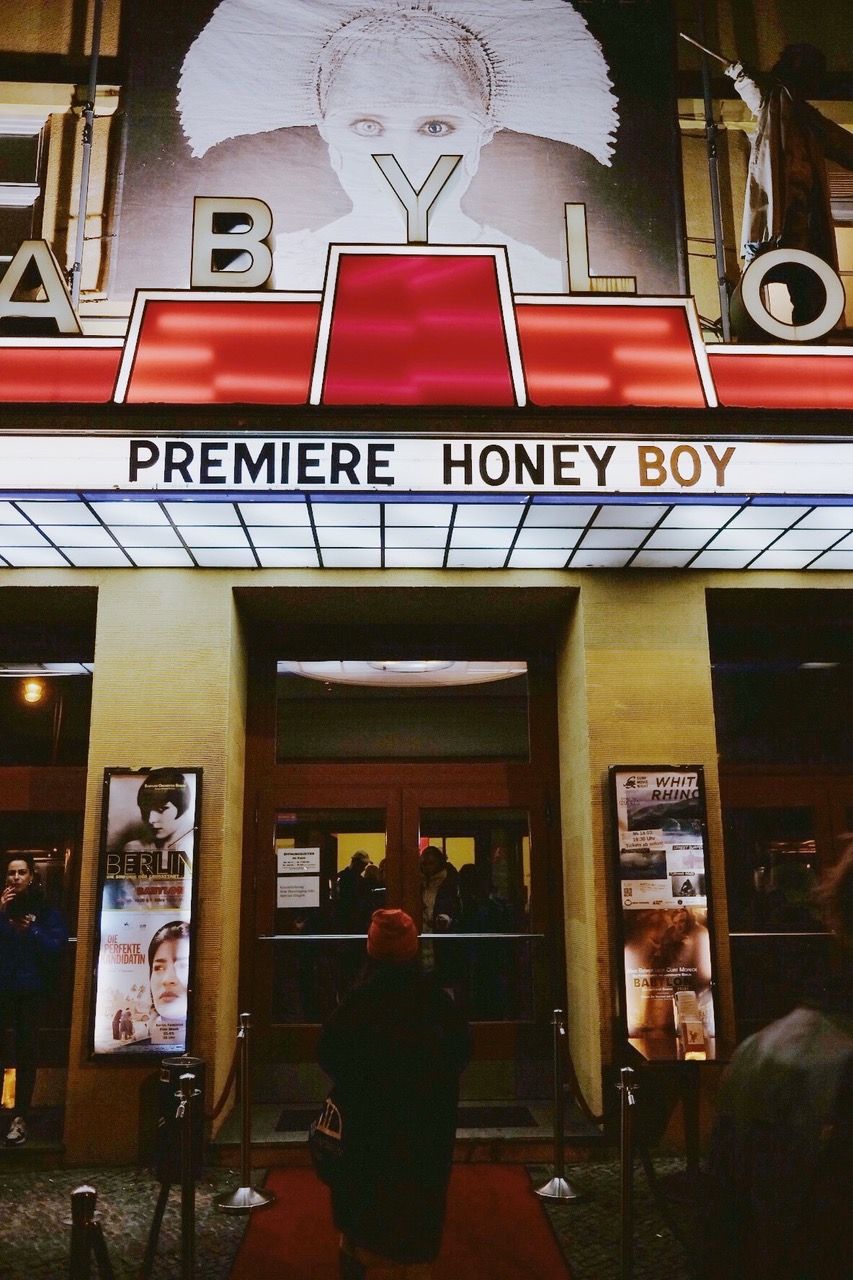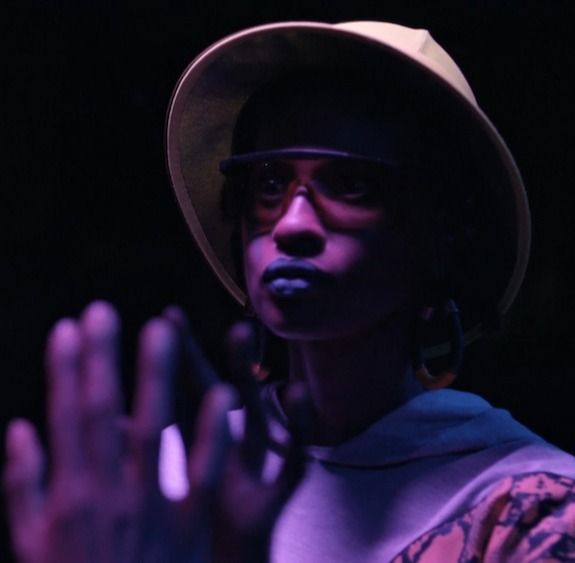While inclusion and diversity seem to be at forefront of every studio and production company mandate these days, very few are actually doing the work to practice what they preach. Rishi Rajani is here to change that. As President of Film & TV at Lena Waithe’s production company Hillman Grad he's on the ground floor of making sure that inclusion and diversity are not just required on all their productions, but essential to their core.
Working his way up the studio ladder from the mailroom, he experienced just about all that Hollywood can throw at you—luckily for him, nothing was actually thrown, not even a stapler. Now, he's on the other side, with the honor of being in this year's Hollywood Reporter's 35 Under 35 Rising Executives list to show for it.
Together, Rishi and Lena are changing the development game and executing their vision of what they know the industry can be. On top of Hillman Grad's loaded development slate, Rishi and Lena have served as executive producers and mentors for this year's AT&T Hello Lab Mentorship Program; over five months, the pair guided 10 participants in the production of five original short films.
Here, we talk to Rishi about his humble beginnings, toxic studio systems, and his mission of utilizing art as a means for social change.


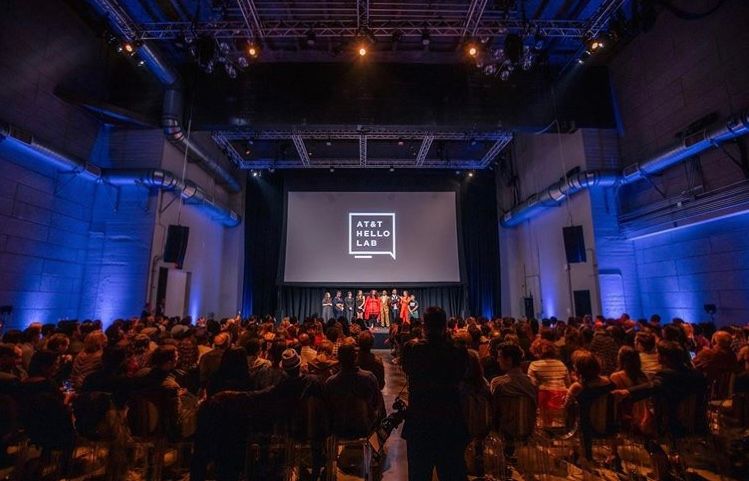
Left to Right: 2019 AT&T Hello Lab Short Film Posters ; Angela Wong Carbone, Malakai, Mechi Parada Lakatos, Vishnu Vallabhaneni, Jasmine Johnson, Lena Waithe, Cierra Glaudé, Jessica Mendez Siqueiros, Brittany Menjivar, Alison-Eve Hammersley, Malik Aziz, & Rishi Rajani ; AT&T Hello Lab Celebration @ Neuehouse Hollywood
Can you tell me a bit about how you got to this point in your career?
I was born in London and grew up in upstate New York and Portland, Oregon. I didn’t know any facts about the film industry besides the fact that I loved movies. I ended up going to NYU for school. I still had this love of art and culture but had this plan to go into finance, make a bunch of money, then go into Hollywood to finance independent films. I very quickly realized that was not the right path for me. I didn’t love being in Wall Street. I didn’t love being in that system. So I ended up working all these odd jobs in New York trying to break into the film industry.
I was a receptionist for Morgan Spurlock, worked for a couple different of off-Broadway shows, and I was doing marketing, publicity, and PR work. I got my real estate license and was selling apartments on the weekends trying to make ends meet. I ended up getting an internship with the 20th Century Fox and I worked with them when they optioned Gone Girl and some other cool properties. There, I got a sense of what studios are looking for and being in the middle of it which was great. Then I moved to the big agencies and worked my way up from the mailroom. I worked for this incredible woman and then went with her when she left to help run books at Paradigm.
A call from an old boss finally bumped me up to executive on the feature side. I eventually was able to come in on the TV division after one of my other mentors left. And that’s where I met Lena [Waithe]. I was getting a little burnt out doing what I was doing, and got really excited at the idea of becoming a producer. About a year and a half ago, Lena gave me a call and asked me about joining Hillman Grad. It’s been an incredible rocketship. We are shooting three films, three seasons of television, a TV pilot, music videos, commercial campaigns, and short films through our AT&T program. We’re really building out Hillman Grad to be a real production company.

What kind of content is Hillman Grad drawn to?
The kind of content that Lena and I wanted to pursue was truly diverse content. We really felt like Hollywood wasn’t really embracing diversity in a substantial way. It is our responsibility to support different perspectives and voices, while still being fun to watch.
"Good mentorship to me has to be tangible . . . It’s like, do you really care about diversity? If so, just hire them."
How do you go about scouting these new voices?
I like to think we have an openness to our company that you don’t see at a lot of other companies. There are so many barriers in Hollywood that kept people from access. The thing I respect about Lena is that she will respond to a DM. We put together an initiative with the Blacklist where if you got ranked a certain number on the Blacklist, then you could submit your script to Hillman Grad.
For our script mentorship program, we reviewed [submissions] and picked five that actually turned into short films. We try to be a bit different than the “no, you need [representation] to submit your script” mentality. A great story can come from anyone. We try to not discredit anyone because they don’t have the right agent or the right manager or the right support.
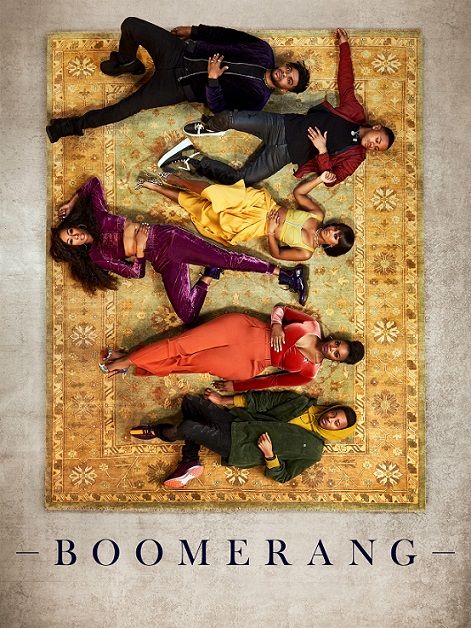
There are so many up-and-coming creatives that think, “I need someone to give me my shot so that I can get the experience, but how do I get the experience if no one will give me my shot?” How does Hillman Grad aim to change that dilemma for creatives?
We are huge on giving people their shot. For example, for Boomerang season one, we had a team of varying experience. There were five directors, including our pilot director Dime Davis who had not directed in television or feature films before. They were all coming off short films and they were all people of color. So for us, it was really important to give all these people their first episodic directing experience. A lot of them then go on to start working because the best way to really empower people and give them a shot is to hire them. There are a lot of director mentorship programs that allow people to shadow an episode, but that doesn’t seem all that helpful to me. Shadowing is cool, but until you get that first episodic directing experience on your resume, you can’t break in and get the work.
It's been great to see our directors get their first episodic experience on Boomerang and then go on to do a lot more work. Lena and I believe that anyone you take a chance on is going to work a million times harder for you than someone who is on their 25th pilot or something. We give a lot of writers their first room experience, too, from our PAs to our assistants. We do the same for our directors and feature writers as well. For us, it’s exciting to run the company the way we want to while building out people’s careers; we want to work with people again and again and again.
Because there is so much nepotism in this industry it can feel impossible for anyone to break in.
Exactly. There is still this studio mentality of, “Do we really want to hire that person? It seems kind of risky since they’ve never done TV before.” And it’s like, well, how do you expect to change the old straight white male director pool unless we give more people the chance to direct? It also makes our content better if our people that are directing and writing our shows are reflective and emblematic of who our shows are about.
Would you say that is what excites you about working with new voices? Getting to be on the ground floor of the next generation?
Absolutely. There are so many incredibly talented writers and directors out there that deserve opportunity. I just want them to train and to see people whose work has inspired me. To go through the job of a producer with someone whose vision you so believe in makes victory even sweeter.
What does good mentorship look like to you?
Good mentorship to me has to be tangible. Like, it’s all well and good to say you are mentoring someone and giving them advice. But, ultimately, what are the tangible steps you can do to get someone hired, to get them that first job and to actually get paid to do their art? Otherwise, people’s careers don’t become sustainable. It does get a bit frustrating just hearing the rhetoric all the time. It’s like, do you really care about diversity? If so, just hire them.
For us, mentorship is being there and offering up guidance. But it is also about: What rooms can we get you in? Can we get you an episode of this? It’s really about being deliberate and intentional about the ways we mentor people so it doesn’t just come across as shallow. I just want to make sure anyone that is a mentee of Hillman Grad will feel that they are actually being supported to be successful in Hollywood.
And would you say that the majority of the Hillman Grad mentees have gone on to start full careers?
Absolutely. It has really been cool to see how people have evolved. People who did their first episode [with us] are now working on their first feature. People like A.V. Rockwell and Sean Frank from our AT&T mentorship program. Tiffany Johnson is an incredible director that, after working on Boomerang, went on to direct for Dear White People and Twenties and Black Monday. Dime Davis, who directed the pilot and a few episodes of Boomerang season one, went on to direct the entirety of Black Lady Sketch Show. I am really excited by the company and how we are practicing what we are preaching.
"[Hillman Grad] will take projects out to partners, set it up at a place, and make it. It’s not our MO to let things get stuck in development . . . We really put together an action plan."
Has there been a moment when you discovered a talent or work that just knocked your socks off?
A few that jump to mind. A.V. Rockwell has this short film called Feathers that is just utterly beautiful and transcendent. I remember watching it and feeling like it was one of the most beautiful short films I had ever seen. I never feel like I am captivated by a piece to the point where I forget that I am watching a sample. And when I lose myself in the art, that is when I know it is really good. The best part about my job is, unlike in the studio system, I get to read these pieces, watch these samples, and then get to sit down with people and build out their careers with them, which is a true joy. When you’re in the studio system and you get a great sample it is always like, “Wow, awesome. Be sure to track that writer or director. And once they make a feature or directed a little bit we can talk about sitting down with them." Which, to me, isn’t an exciting nor the right approach.
Could you walk me through the process of how you find new voices?
The first thing we distinguish is if this particular project or idea is something that fits the mandate of the company. Does it feel like protest art, does it feel like it could push the culture forward, does it feel like a point of view that we want to put out into the world? If yes, great. If no, totally fine. If we are still really excited about the voice, it doesn’t matter to us that that particular idea or script isn’t "the one." We will immediately try to set a meeting and bring that person in. We'll go through what their goals and aspirations are. Do they want to direct? For features or TV? If they want to write, what genres do they want to play in? What are they excited about? What can we help them hunt down, like a book or a piece of IP? We really put together an action plan.
A lot of times, general meetings don’t have a plan of here’s what we are going to do next, and here is how we are going to make a project happen. We always want to leave those meetings with actionable tasks. Something like, "Send us loglines and we’ll pick one of those things to develop." Or, "Send us a script when it is ready." We give people deadlines for writing scripts for us and we follow up. We never want to be the people that don’t deliver on what we are talking about. Once we have a piece of material that we are all really excited about, we take it out.
We are very lucky to have an amazing group of financiers and studios across town. We will take these projects out to these partners, set it up at a place, and make it. It’s not our MO to let things get stuck in development. It’s all about follow-up and figuring out the parameters, like the budget level and the cast. We are very clear about what our partners are looking for, then we make sure that we do our part to fulfill all those obligations and push for [content] to get made. And I think that is why we, unlike a lot of other production companies across town, have had so much success in getting things made. If there is an issue, Lena calls it a squeaky wheel. We talk about what those squeaky wheels are and we work it out.


Do you have any advice for any up-and-coming creatives about how they can stand out and be noticed by Hillman Grad?
Constantly create. Constantly write things. Constantly work on your craft. Constantly direct pieces as much as you can. Get your stuff out there. Don’t be afraid to come into Hollywood and take assistant jobs. I was an assistant for several years, as was Lena. It’s all about coming out and being willing to learn, being willing to accept that you may not always be the greatest filmmaker in the world off your first piece.
Every single person who is an artist is also a brand these days. So make sure you are self-promoting and meeting people. Get to the point where you become an undeniable voice. [Entertainment] is not an industry to get into if it’s not the only thing you want to do with your life. There are a lot of easier things to do and a lot of different ways to express yourself. Hollywood is tough and we all know it’s tough.
What would you say to 24-year-old Rishi coming up in this industry and trying to work his stuff out?
Being an assistant is not the most fun job in the world. There are [long] hours and a lot of grueling work and not necessarily feeling that you are being seen. But I had the privilege to have had amazing bosses and mentors that were willing to give me shots and opportunities if I was on my A-game. I learned how to be a good boss and be a good executive. I learned how to scout effectively and how to talk to talent. Rishi’s time will come. And now that I have my own assistant and team of younger executives, I want to give them the same level of respect and feeling of being heard that I was given by so many great people.
"The best part about my job is, unlike in the studio system, I get to read these pieces, watch these samples, and then get to sit down with people and build out their careers with them."
